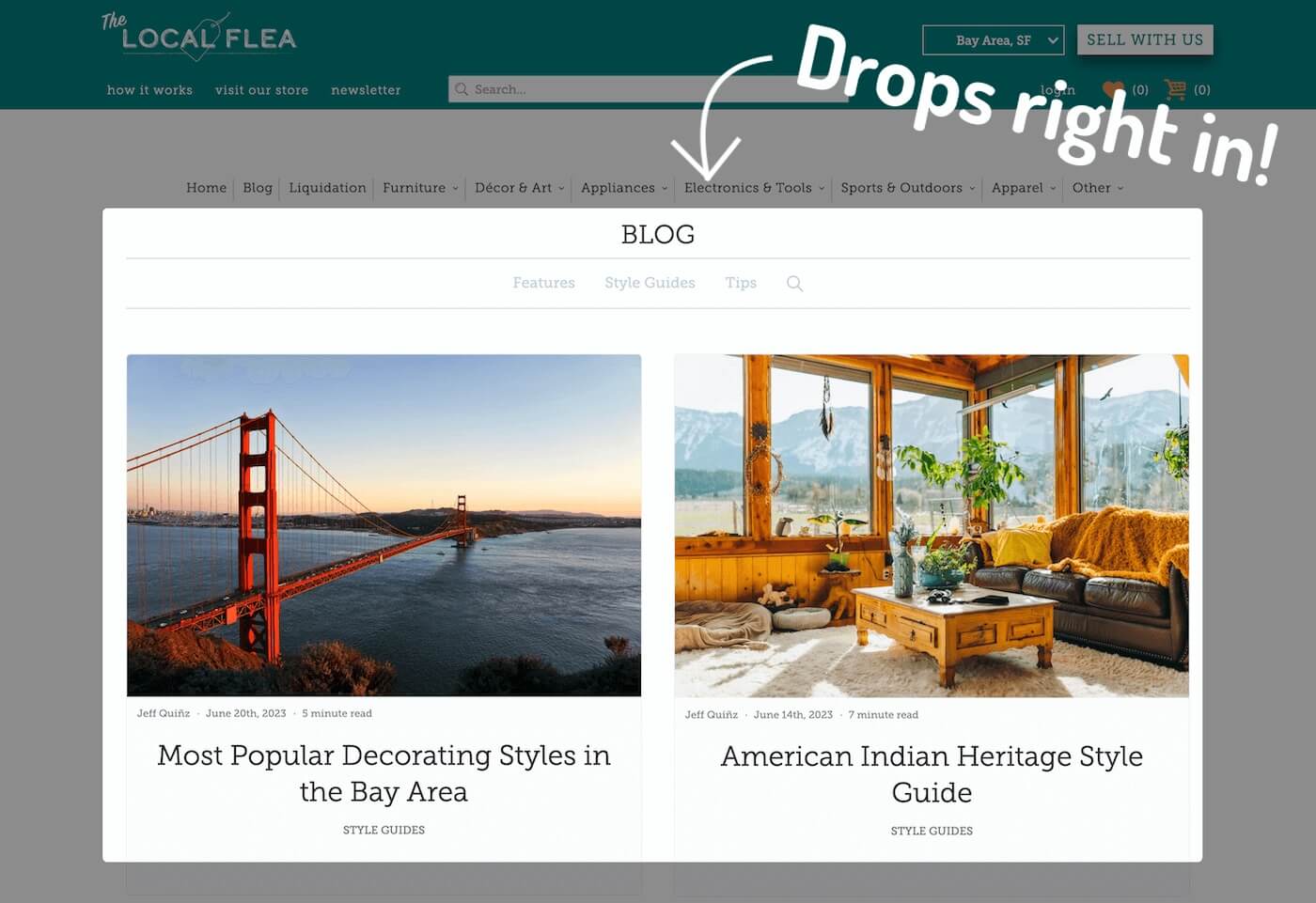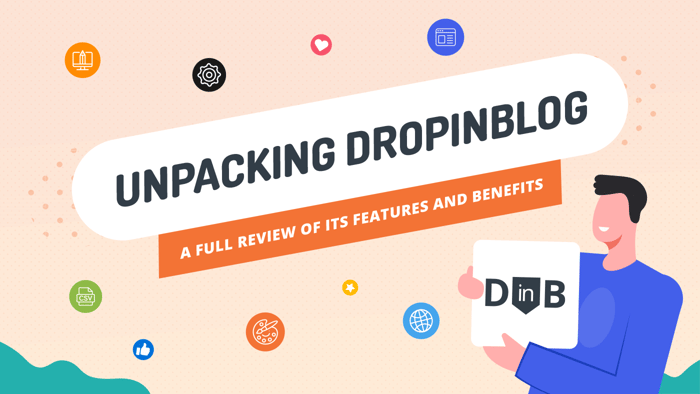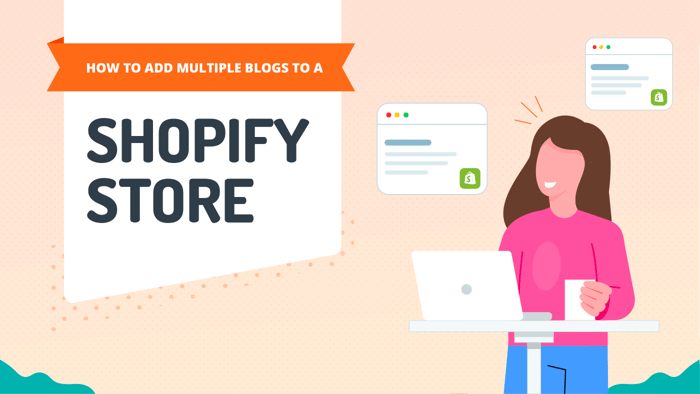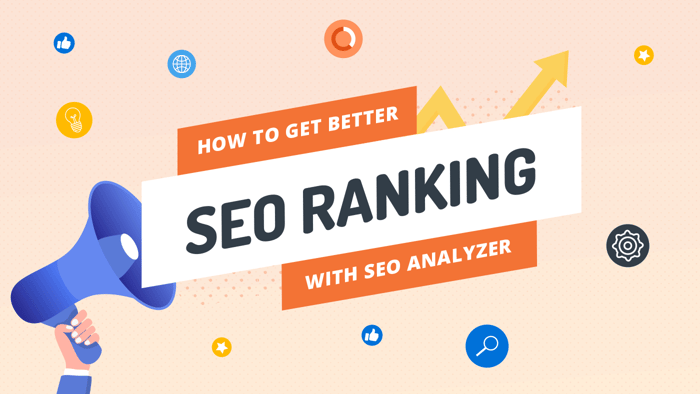Let’s get things straight from the outset. Yes, Big Cartel and Shopify do have things in common, but they are also very different. It's true that they both fall under the same rubric of site builders, or more precisely, web platforms for setting up an e-commerce store. And this does give us the right to compare Big Cartel vs. Shopify, but I'm not sure how much we can treat them as contestants in a head-to-head matchup. There’s no denying, they are competitors, but only to a limited extent. The big caveat here is not to get into the trap of evaluating them like they aim to do the same thing or cater to the same clientele.
Table of Contents
A Bit of Context on Big Cartel vs. Shopify
One of the co-founders of Big Cartel, Matt Wigham, was a musician. He was trying to find a way to sell his band’s merch. He found a collaborator in Eric Turner, who helped him out to start a platform where musicians could sell their creative work online. In time, Big Cartel has become the platform for musicians, illustrators, writers, bakers, filmmakers, and other creatives.
So, who’s Big Cartel for?
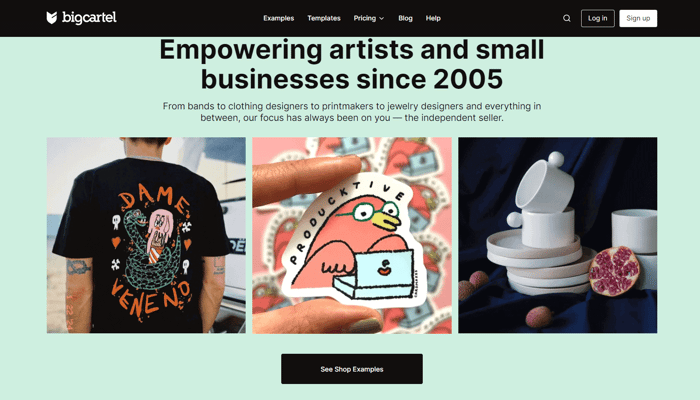
It’s mainly for small businesses. For those who want to avoid paying high monthly fees and get lost in the gazillions of apps and plugins. It’s for those who don’t have tons of products to sell and just want to have a simple, yet fully functional e-commerce store. The way Big Cartel is built reflects this.
Big Cartel isn’t an all-in-one e-commerce solution. Being oblivious of this fact when comparing Big Cartel to its much bigger counterpart is like comparing Kali Linux to Windows, completely overlooking the fact that Kali was conceived as an OS primarily for pen testing and ethical hacking, not for watching videos of cute cats on YouTube. Don’t get me wrong, watching videos of cute cats is really cool, but you don’t need a specialized Linux distro to do that.
On the other hand, who’s Shopify for?
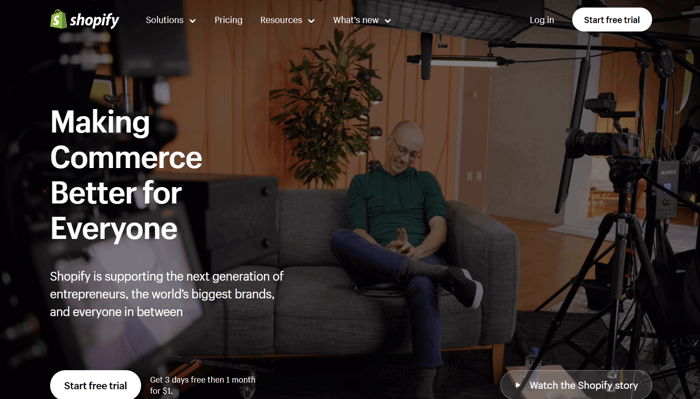
Shopify had humble beginnings. It started in Canada as an online store for snowboarding equipment. But, unlike Big Cartel, it has grown into this huge complete e-commerce solution over the years. It’s suitable for large businesses that are virtually forced to invest in their e-commerce store, for companies that experience significant growth and are willing to put more money in their online stores, or for those who expect and work towards considerable future business growth. Also, putting the size of a business aside, Shopify’s approach is much more generic. There is no specific target group for Shopify: it’s for everyone who wants to sell things online.
This is the fundamental difference between Big Cartel and Shopify: their purpose. Everything else kinda springs from this.
Okay, now that we have that cleared up, it’s time to say something about a few key aspects of these e-commerce platforms. And, keep in mind, it’s more of a pragmatic question: whichever one is more in line with your real needs is the one that’s better. This may sound like a cliché, but that’s really how things are here.
Big Cartel vs. Shopify: A Comparison
Here we’ll be looking into how these two platforms stand in 5 areas vital for any e-commerce store’s success:
- Pricing
- Customization
- Customer Support
- Ease of Use
- Payment Gateways
My remarks are based on personal experience, research on Big Cartel and Shopify, and opinions expressed by users. So, let’s get to it.
Pricing
Big Cartel
Big Cartel offers multiple pricing plans. The beauty is that one is completely free. Big Cartel is the only e-commerce platform around that gives you the opportunity to start selling online free of charge. Versatile payment options, the option to run your store via mobile app, and pre-made themes are all included in the free plan. Of course, there are some limitations. You can only have a few products, but for not spending a penny to start out online, it’s hard to see how this can be a deal-breaker.
The second option is to subscribe to a paid plan. With a paid subscription, you’ll get a lot more features, including more products in your store, advanced theme customization, and various third-party app integrations.
Another perk of Big Cartel's paid plans is that you don’t pay listing and transaction fees. Moreover, you can get a hefty discount if you pay for a whole year in advance.
Shopify
The cheapest Shopify pricing plan will cost you a few bucks per month. One caveat: with this plan you don’t get a full online store. Its main use is to help you sell products on social media.
If social selling is not your thing, Shopify has several more pricing options. These range from around $40/month to several thousand dollars. The higher the plan, the more features you’ll get. Depending on the plan, these features range from the option to sell an unlimited number of products and add a blog to abandoned cart recovery, free SSL certificate, and collaborator accounts.
Now, a short digression. It’s worth mentioning that abandoned cart recovery is a very cool feature. For example, say a customer added one of your products to their cart and, for whatever reason, just left it there for days. After a while, they would receive a non-pushy reminder (email or other) about this product, which can win you back leads and help you convert them to customers. OK, now let’s return to the main topic. With its basic plan, Shopify mainly targets small businesses or businesses in their infancy but with plans for serious growth.
Another difference between Shopify plans is the transaction fee. As you’d expect, the more expensive plan you choose, the lower the transaction fee will be. By contrast, Big Cartel doesn’t have these types of fees, which makes it a favorable solution when comparing these two platforms’ pricing structures.
Overall, Shopify is pricey. But it covers a lot of ground, so you feel like it’s really got your back.
Another cool thing about Shopify plans is that if you sign up a year in advance you get a significant discount, which is pretty neat. If you want to check out the nitty-gritty details of Shopify’s plans, you can visit the platform’s pricing page.
Customization
Big Cartel
The general sentiment is that Big Cartel does offer customization, but its scope is a bit limited.
Big Cartel has around 20 free themes. Some elements of these themes can’t be changed, but you can still do a fair amount of tweaking to make your storefront look cool and aesthetically pleasing. However, you will need coding skills to make more significant changes.
When it comes to third-party software integration, Big Cartel really makes things simple for you. You won’t be overwhelmed by billions of apps and add-ons. Instead, what it provides you with is just about the perfect number of essential extensions you’ll need for a highly functional and beautiful e-commerce store.
Occasionally, you’ll come across complaints about Big Cartel templates being short of some fairly basic features, like native product videos, and customer logins.
But customer login is not always an advantage. Sometimes, when I want to take a look at a product or buy it but a sign-up and log-in are required, I feel pretty discouraged to continue. I really don’t feel comfortable signing up and signing in every time I want to check out something on the internet. What I’m trying to say is that the lack of customer logins can be a positive thing because it makes everything much more convenient and simple. As for native product videos, I’m almost positive that if this turns into a recurring complaint, Big Cartel will find a way to add this option to its templates.
A feature that’s really missing from Big Cartel’s fairly broad repertoire is a blogging option. But with an easy-to-integrate blogging tool like DropInBlog, this won’t be a problem at all. Check out this article and see how seamless this process can be.
Keep in mind that Big Cartel’s philosophy is to enable you to have your online store up-and-running in no time. Both the lack of sophisticated features and the limited customization choices are completely aligned with this philosophy. And you know what? Depending on clients’ needs, this can really be a great thing!
Shopify
Shopify offers 10+ free and over 200 paid themes. The prices of the commercial themes go up to several hundred dollars. They’re not exactly cheap, but there is a lot you can do with them. The best thing is that they are extremely scalable and you can actually modify your layout. Or you can just chill and focus on your business instead, because Shopify templates are rich with so many features right out of the box that you may find customization unnecessary.
With Shopify, you play around with code only if that’s your cup of tea.
The Shopify app store has bazillions of apps, add-ons, and whatnot that can help you advance your business. Almost half of them are free. You can even add games and free high-res images. As one reviewer said, you can assume that Shopify has an app for everything.
But this level of customization and integration options come at a price. Literally. If you add up commercial apps, addons or extensions, slowly but surely the costs will accumulate, and you may end up paying an arm and a leg for your Shopify experience. So, be cautious with these extra costs. The most recommendable approach is to look into the app store, see what’s really necessary for your business, calculate the overall costs (the plan you choose plus the apps you need), and only then take action.
Customer Support
Big Cartel
Big Cartel’s customer service representatives are available 24 hours during work days and between 8 am and 6 pm EST on weekends. Clients can contact them via email and chat. This means that if you have an urgent problem to solve or live in a different time zone and the time difference is huge, getting help could be a bit of a challenge. The staff generally answers within 2–48 hours on work days, or 70+ hours during holidays.
There’s also a Help page with all the necessary information on different topics: FAQ, how-tos, and so on.
Shopify
Shopify has got its clients covered 24/7 through various channels: phone, social media, live chat, forum, email, videos, podcast, and advanced specialist support. But it’s a big company that takes pride in being a home for more than a million web stores – with some of the most prominent clients being the Los Angeles Lakers, Tesla, and Wikipedia – so around-the-clock support is kinda the natural thing to expect here.
Shopify also has a Help Center. It’s so intuitive to use and rich in content that you can easily navigate it and find whatever you're looking for.
Ease of Use
Big Cartel
Big Cartel’s onboarding process is intuitive and quick. If you’re cool with a WYSIWYG interface and you have a minimal-effort approach towards e-commerce, Big Cartel will strike a chord with you. Big Cartel is all about simplicity!
The learning curve when it comes to understanding the essentials and making your store operational is pretty much flat. In the same fashion, you won’t have to spend that much time setting up things. But it’ll get harder if you decide to create a full-fledged, as-you’ve-always-imagined e-commerce store. There will be things that you just won’t be able to change unless you roll up your sleeves and do some heavy coding.
Shopify
Due to the countless choices and options that Shopify provides, it’ll probably take some time until your e-commerce store gets the desired look and you manage to implement all the functionalities you want. But after this initial process, you can just relax and start doing business, knowing that Shopify will have you covered every step of the way.
Payment Gateways
Big Cartel
Big Cartel doesn’t have its own payment gateway, but it works with PayPal and Stripe. As mentioned before, Big Cartel doesn’t deduct anything from your sales, which is pretty neat, but the same doesn’t apply to the two payment processors. You can add them at no cost, but they both take a portion from your earnings. Stripe charges 2.9% plus $0.30 per transaction, while PayPal fees are slightly higher – 3.49% plus $0.49 per transaction.
Worth mentioning here is that Big Cartel is not PCI compliant, which means that you take full responsibility for the security of credit card transactions. If the cardholder information is in any way compromised, you’re on your own.
Shopify
Shopify is fully PCI compliant and it collaborates with a large number of payment processors, to be more precise, about 100 of them from all around the world. However, you should be aware that with Shopify you’ll be paying not only for a third-party payment gateway’s services, but for Shopify services as well.
However, there’s always the option of using its own payment gateway, Shopify Payments, which doesn’t charge any additional costs. So you can always go with that to cut down on the expenses.
Final Verdict
In a way, this heading is misleading. Why? For the simple reason that I tried to resist the temptation to look at Big Cartel and Shopify as contestants in the exact same competition. Maybe they are both runners, but one of them is a sprinter while the other one a marathon runner. I think this is a pretty apt analogy.
On the other hand, it can still be an appropriate comparison. If you take these two platforms for what they really are, understand their differences and respective advantages, then you should definitely go with the one that’s the perfect fit for you.
Who’s Big Cartel For?
If you are a creative individual or you own a small business of handicrafts, and you don’t want to spend too much time on your e-commerce store, then maybe you should opt for Big Cartel.
Additionally, you might want to give Big Cartel a try if:
- You’d rather test things with something that has a free plan.
- You only really need simple e-commerce features.
- You don’t have the intention of expanding your business really quickly, really soon.
Who’s Shopify For?
If you own a big company or you plan to grow, then maybe you would be better off choosing Shopify.
Additionally, you might want to go with Shopify if:
- You have a large catalog of products.
- Scalability is really important to you.
- You enjoy tweaking things and checking out bazillions of apps.
The good thing is that Big Cartel gives you a completely free option to start online and Shopify offers a free trial. You can start with one of them, gain hands-on experience, and then finally settle on the one you think is really for you. So, choose wisely and have an awesome experience, whichever you choose!

